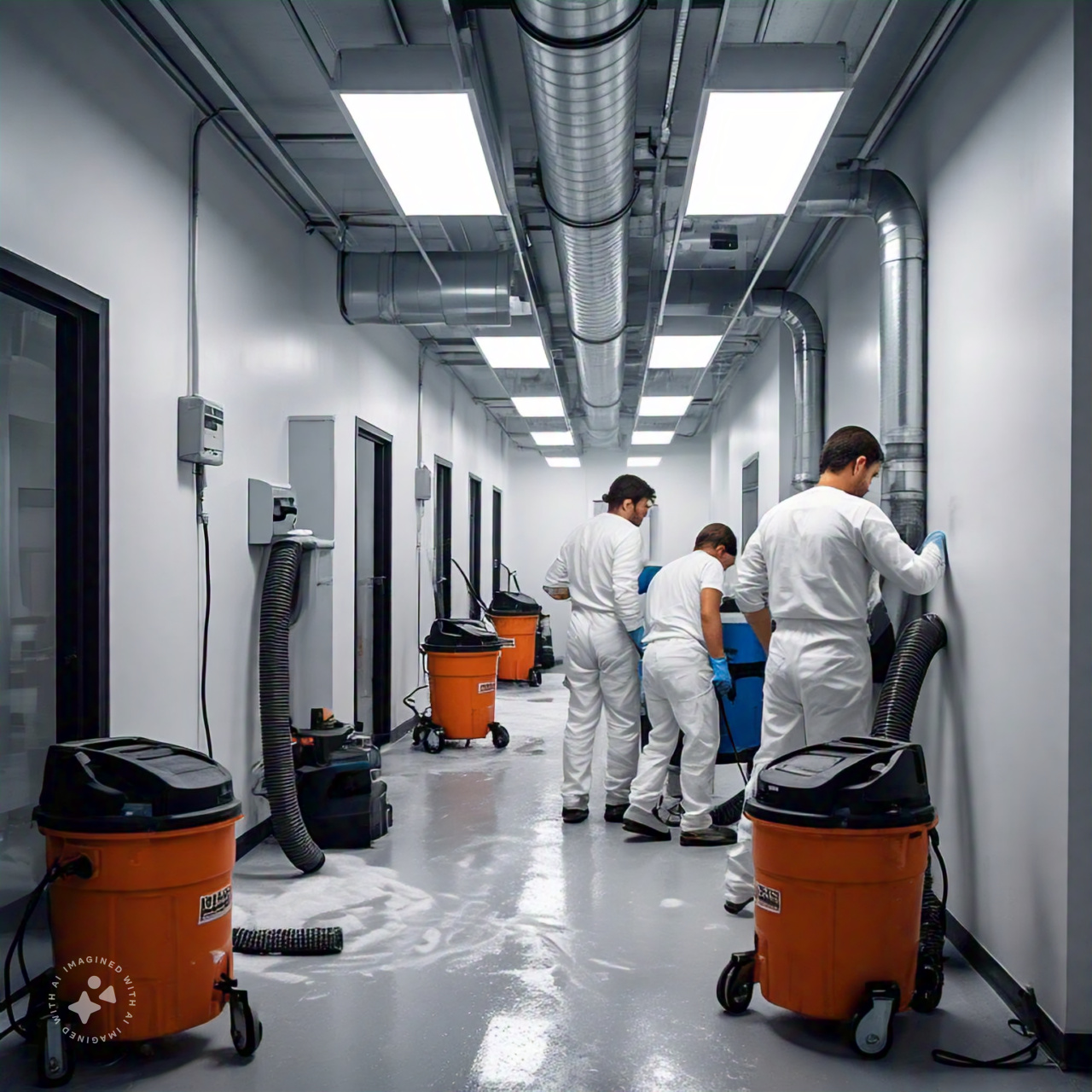When it comes to maintaining a clean and healthy indoor environment, we often focus on tasks like regular vacuuming, dusting, or even changing the air filters in our HVAC systems. However, one essential maintenance task that often goes unnoticed is duct cleaning. Your HVAC system’s ducts play a crucial role in circulating air throughout your home or business, and over time, they can accumulate dust, debris, mold, and other contaminants. But what exactly is duct cleaning, and why is it so important? Let’s explore.
What is Duct Cleaning?
Duct cleaning in Melbourne is the process of removing dust, debris, mold, and other contaminants from the ducts in your heating, ventilation, and air conditioning (HVAC) system. It involves using specialized equipment, such as high-powered vacuums, brushes, and air whips, to clean out the ductwork and restore optimal airflow. The goal is to remove any buildup that can compromise the air quality inside your home or business.
This cleaning process includes not only the main ducts that deliver air to different rooms but also other components like the air handler, registers, and grills. Duct cleaning is typically performed by a professional HVAC technician who can access hard-to-reach areas of the system and ensure that it is thoroughly cleaned.
Why is Duct Cleaning Important?
Over time, your HVAC system can accumulate a variety of particles, including dust, dirt, pet dander, pollen, and even mold. These particles can affect the quality of the air you breathe, making duct cleaning an important part of maintaining a healthy indoor environment. Below are some reasons why duct cleaning is necessary.
1. Improved Air Quality
Indoor air quality is a significant concern for many homeowners and businesses. In fact, the U.S. Environmental Protection Agency (EPA) lists indoor air pollution as one of the top five environmental health risks. The ducts in your HVAC system can act as a breeding ground for dust, dirt, mold, bacteria, and allergens. As your HVAC system operates, these particles are circulated throughout your indoor spaces. Over time, this can lead to poor indoor air quality, which can aggravate allergies, asthma, and other respiratory conditions.
By having your ducts cleaned, you remove these contaminants, improving the air quality in your home or business. Clean ducts contribute to a healthier environment, particularly for individuals with allergies or respiratory issues.
2. Increased HVAC Efficiency
When your HVAC system’s ducts are clogged with dust and debris, it has to work harder to push air through the system. This can strain the system, causing it to consume more energy and operate less efficiently. As a result, you may notice higher energy bills and reduced comfort in your indoor spaces.
Duct cleaning helps restore proper airflow, enabling your HVAC system to function more efficiently. When the ducts are free of obstructions, the system doesn’t have to work as hard, which can reduce energy consumption and improve the overall comfort of your home or business.
3. Prevention of Mold Growth
Damp or moist environments are ideal for mold growth. If there’s moisture present in your ducts—whether from humidity, leaks, or condensation—mold can start to grow, especially in places where air circulation is poor. Mold in your HVAC system is a serious issue that can negatively impact both your health and the integrity of the system. Mold spores can be dispersed through the air and inhaled, leading to respiratory issues, allergic reactions, and other health problems.
Duct cleaning helps identify and address any potential mold growth in the system. If mold is detected, it can be treated and removed to prevent it from spreading further.
4. Reduced Allergens and Dust
If you’ve noticed that your home or office seems dustier than usual, or if you find that you’re frequently cleaning dust off furniture, it could be a sign that your ducts need cleaning. Ducts accumulate dust and other allergens over time, which can be spread into the air whenever the HVAC system is running. This buildup of allergens can exacerbate allergies and trigger symptoms like sneezing, coughing, and itchy eyes.
By cleaning your ducts, you reduce the amount of dust and allergens circulating in your space, leading to a cleaner and healthier environment for you and your family or employees.
5. Extended Lifespan of HVAC System
Regular maintenance of your HVAC system is essential to ensure its longevity. When your ducts are clogged with debris, your HVAC system has to work harder to push air through the system. This added strain can cause components of the system to wear out more quickly, potentially leading to costly repairs or even premature failure.
Duct cleaning helps prevent unnecessary strain on your HVAC system, extending its lifespan and improving its overall performance. Regular cleaning, along with other HVAC maintenance tasks, ensures that the system continues to operate smoothly and effectively for years to come.
How Often Should You Have Your Ducts Cleaned?
The frequency with which you should have your ducts cleaned depends on various factors, including the size of your home, the number of pets, whether anyone in the household suffers from allergies, and the amount of dust and debris in the environment. Generally, it’s recommended to have your ducts cleaned every three to five years. However, homes with pets, smokers, or individuals with allergies may require more frequent cleaning.
If you notice any signs of mold, excessive dust, or unusual smells coming from your vents, it may be time for a cleaning. Additionally, if you’ve recently completed major renovations, dust and debris may have accumulated in your ductwork and should be addressed.
Conclusion
Duct cleaning is an essential part of home or business maintenance that can have a significant impact on the quality of the air you breathe, the efficiency of your HVAC system, and the longevity of your equipment. By investing in professional duct cleaning, you can improve indoor air quality, reduce allergens, prevent mold growth, and keep your HVAC system running efficiently for years to come.





